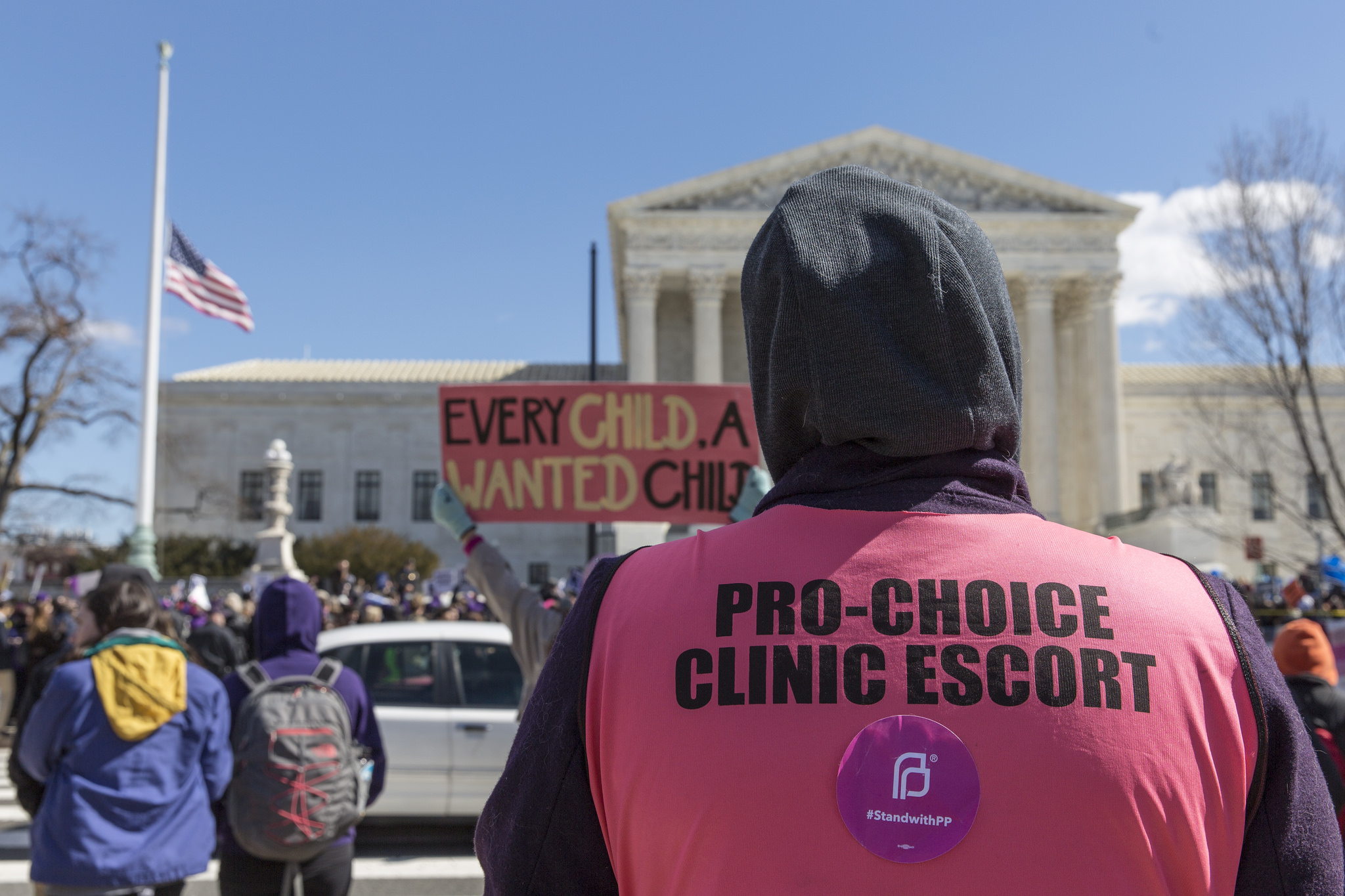Abortion rights, women of color, and LGBTQIA+ people are under attack. Pledge to join us in fighting for gender justice.
NWLC Files Amicus Brief Supporting Woman Who Was Denied Emergency Contraception

Update: On March 18, 2024, the Minnesota Court of Appeals determined that Ms. Anderson was entitled to judgment as a matter of law that the pharmacist had engaged in business discrimination based on sex and to a new trial as to whether the pharmacy violated the state’s public-accommodations protections against sex discrimination, and whether the pharmacist aided and abetted that violation. Crucially, the Court held that a refusal to dispense emergency contraception because it may interfere with a pregnancy is sex discrimination.
On a below-freezing morning in January 2019—in McGregor, Minnesota, population 362— Andrea Anderson needed emergency contraception. So, she called Thrifty White, the only pharmacy in town, to see if she could get ella: a prescription-only emergency contraceptive.
The sooner you take emergency contraception after unprotected sex, the more effective it is at preventing pregnancy. So, when Thrifty White’s policy allowed the pharmacist working that day to refuse to fill Ms. Anderson’s ella prescription, and the pharmacy provided no other way for her to get the medication she needed, panic started to set in.
When Ms. Anderson finally found a pharmacy that was willing to fill her prescription, it was over fifty miles away. So, she drove three hours, round trip, in a dangerous snowstorm, just to access this basic, time-sensitive health care.
Gender Justice, a St. Paul-based nonprofit organization, brought a discrimination lawsuit on behalf of Andrea Anderson. When the case went to trial in 2022—and due to faulty instructions from the judge that misstated the law—the jury found that the Thrifty White pharmacy did not discriminate against Ms. Anderson when she was denied access to emergency contraception. Ms. Anderson knew that what she experienced at Thrifty White wasn’t just wrong, it was discriminatory.
On July 7, 2023, the National Women’s Law Center (NWLC) filed an amicus brief in Anderson v. Aitkin Pharmacy Services, LLC d/b/a Thrifty White Pharmacy, in support of Andrea Anderson who was denied emergency contraception because of the pharmacy’s policy that enabled the refusal of the care she needed. Contraception, including emergency contraception, is an essential aspect of health care that is uniquely needed by people capable of pregnancy. To deny a patient’s access to sex-specific prescriptions is to discriminate on the basis of sex. Discrimination based on sex, including pregnancy status, is unlawful under the Minnesota Human Rights Act (MHRA).
Our brief highlights the specific, serious harms caused by a refusal to fill an emergency contraception prescription:
People seeking emergency contraception will have difficulty accessing alternative care once refused.
If a pharmacy refuses to fill an individual’s prescription, that individual is less likely to ultimately receive the care they need. In this case, Ms. Anderson had to drive three hours round trip in a snowstorm in order to fill her prescription because the pharmacy that refused to fill it was the only one in her town. Pharmacies refusing to fill prescriptions is especially alarming in rural communities where alternatives are not available. In Minnesota, 10% of women live in rural areas.
Additionally, there are limitations of availability and accessibility of emergency contraception in pharmacies. There may be suboptimal stocking or pharmacies may choose to place over-the-counter emergency contraception behind the counter or in a locked box—which can be intimidating for those trying to access it. Even more egregious is the fact that some pharmacies do not stock emergency contraception at all.
People denied emergency contraception are harmed by being put at risk of pregnancy.
People denied emergency contraception are ultimately at risk of becoming pregnant against their will. Some may simply desire not to become pregnant at that point in time, while others find it necessary to prevent pregnancy to treat or manage other health conditions. Pregnancy can dangerously exacerbate pre-existing health conditions, such as diabetes and gender dysphoria. Additionally, those with certain serious health conditions, like pulmonary arterial hypertension (which is more common among Black women) and cyanotic heart disease are counseled to avoid pregnancy due to the very high risk of maternal and fetal mortality. Pregnancy also may not be compatible with certain medications, like some anti-psychotic drugs or chemotherapies.
Pregnancy and childbirth also impose significant and direct economic costs. Many women in low-wage jobs who become pregnant are denied pregnancy accommodations and face workplace discrimination, forcing some to quit or be fired or pushed into unpaid leave. Despite recent and critical workers’ rights advances through the Pregnant Workers’ Fairness Act, some employers will continue to deny pregnant workers reasonable accommodations. In addition to the immediate economic costs of having a child—including child care, food, housing, and other necessities—those who bear children also face diminished earnings, interference with career advancement, disruption of education, and fewer resources for children they already have. This is especially true with respect to childbirth from unintended pregnancies.
When pharmacies block access to reproductive health care, the harms caused by existing, pervasive patterns of discrimination in health care are exacerbated, particularly for Black women.
Women, who are most often the subjects of refusals of reproductive health care, have long been the victims of discrimination by health care providers. This discrimination is particularly dangerous for Black women, who experience compounding race- and sex-based discrimination in health care, the results of which are dire: Black women are more likely to experience pregnancy-related complications than white women and are 3.5 times more likely to die from pregnancy-related causes.
The bottom line: All people deserve the freedom to decide if, and when, they want to become pregnant, and how they want to live their lives.
When a pharmacy implements a policy permitting its employees to refuse to fill emergency contraception prescriptions, it discriminates on the basis of sex and cuts off individuals capable of pregnancy from being able to participate equally in society. This is unacceptable. In Ms. Anderson’s case and beyond, NWLC will keep fighting to ensure that everyone has equal access to reproductive health care, including emergency contraception.
Read our full brief here.




